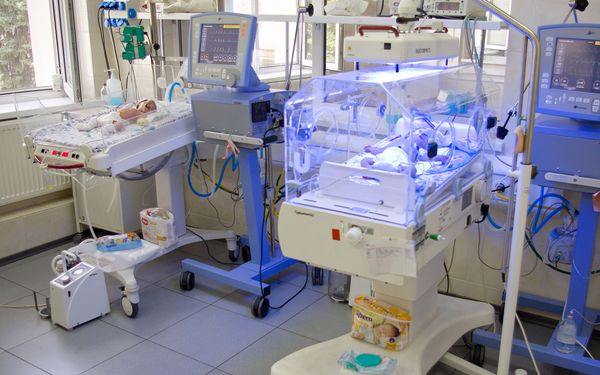
Andrea Roberts of Gaithersburg is executive director of Reece's Rainbow, which places children with Down Syndrome from around the world with adoptive parents
When her first child was born with Down syndrome, Andrea Roberts was grief-stricken. Then she fell in love with her son, Reece, now age 7.
Now she works to help American families adopt children with Down syndrome born in foreign countries. Her reach is from the Ukraine to the Grenadine Islands and she places an average of one child per week.
"This country has comes so far with inclusion, with laws to help disabled people," the Gaithersburg woman said, describing her mission. "But overseas, they are 60 years behind."
Roberts, 36, has helped to place 190 children in homes over the last three years, working as a one-woman show with a host of Internet-savvy supporters.
The 1990 graduate of Quince Orchard High School recently returned to Gaithersburg from Atlanta, where in 2006 she formed Reece's Rainbow Down Syndrome Adoption Ministry, an international nonprofit.
She calls Reece's Rainbow a Christian ministry, although it is not a faith-based organization. She formed the agency following a four-year journey that began in 2002 when she and husband Rich, 38, learned of Reece's condition.
"We didn't think there was anything wrong with him and neither one of us had any significant experience in our life that would help us that," said Roberts, recalling the day after her son was born.
People with Down syndrome experience mild to moderate cognitive delays, according to the National Down Syndrome Society. They have increased risk for medical conditions from congenital heart defects to respiratory and hearing problems and many have physical features that include slanted eyes, small stature and low muscle tone.
"It's nothing that you would want for your children, really," said Roberts, who said she grieved for two years, then in 2004, a nurse from the hospital formed a community outreach group and named it Reece's Rainbow. Roberts, a stay-at-home mother, helped counsel families who had new babies with Down syndrome.
As she overcame her grief, Roberts considered adopting another child with Down syndrome, hoping to provide her son a friend and sibling with similar needs.
"I remember when he was 2?, 3 years old, I was just so intensely in love with him. He was so cute, he was such a charmer, he was such a light," said Roberts, who later gave birth to a second son, Owen, 4, who does not have the condition.
She volunteered for an agency that helped orphans abroad and learned that in many economically deprived countries, the majority of children with Down syndrome are orphaned.
Roberts has built relationships with facilitators and licensed adoption agencies in 33 countries. She counsels and pre-screens families and helps get them approved for international adoption. Roberts helps to raise money for adoption costs.
There is no shortage of children needing homes or families wanting to adopt them, said Roberts.
"Because the truth is, if we had a full grant, or even a half grant, $10,000 for every child, the truth is that none of them would wait."



